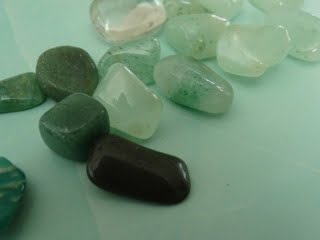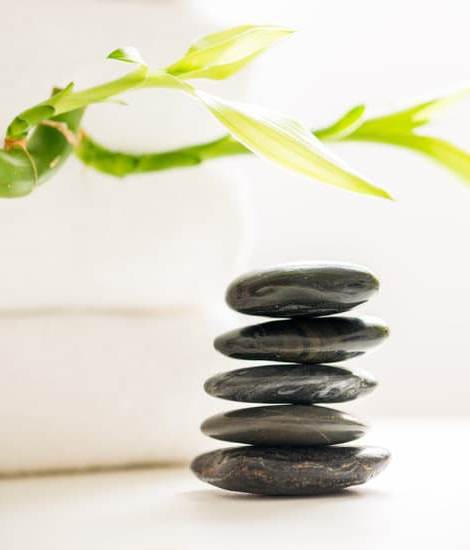House decor for feng shui is a crucial aspect of creating a harmonious and balanced living space. Feng Shui, an ancient Chinese practice, focuses on the arrangement and orientation of objects and spaces to promote positive energy flow and create a sense of balance and harmony in the home. Understanding the principles behind Feng Shui can help individuals improve the energy and ambiance of their living spaces through intentional decor choices.
When it comes to implementing Feng Shui in house decor, there are several key elements to consider. From the significance of color choices to furniture arrangement, incorporation of natural elements, decluttering, lighting, art, decorative items, and personalization, each aspect plays a vital role in creating a home that aligns with Feng Shui principles.
In this article, we will explore the basics of Feng Shui and provide practical tips for incorporating this ancient practice into your home decor. By understanding the principles behind Feng Shui and learning how to apply them to your house decor, you can create a balanced, harmonious living space that promotes positive energy flow and overall well-being.
Choosing the Right Colors
When it comes to house decor for Feng Shui, color plays a critical role in creating a balanced and calming atmosphere in your home. Understanding the significance of color in Feng Shui can help you make informed decisions when choosing the color palette for different rooms in your house. In Feng Shui, each color is associated with one of the five elements (wood, fire, earth, metal, and water) and has specific characteristics that can influence the energy of a space.
For example, the color blue is often associated with calmness and tranquility, making it an excellent choice for bedrooms and meditation areas. Green represents growth and vitality, making it suitable for spaces where health and well-being are a priority, such as the kitchen or home gym. Red is linked to passion and energy, so it can be used sparingly in areas where you want to stimulate activity or conversation, like the dining room or living room.
It’s important to note that while certain colors may have positive associations in Feng Shui, individual preferences and cultural influences also play a significant role in how different colors are perceived. Ultimately, the goal is to create a color scheme that resonates with you and promotes a sense of balance and harmony within your home.
| Color | Element | Associations |
|---|---|---|
| Blue | Water | Calmness, tranquility |
| Green | Wood | Growth, vitality |
In addition to considering individual colors within your home decor for Feng Shui, it’s essential to think about how these colors work together as a cohesive palette. Harmonizing different colors to reflect the balance between Yin (passive) and Yang (active) energies is key to creating a harmonious space according to Feng Shui principles.
By understanding how different hues interact with each other based on their elemental associations, you can create a more balanced environment that supports overall well-being in your home.
By mindfully incorporating these principles into your house decor for feng shui – both through wall paint choices or accent pops of color – you’re sure to feel its positive energy every time you step foot into your abode.
Furniture Arrangement
When it comes to incorporating feng shui into your house decor, the arrangement of furniture plays a crucial role in promoting positive energy flow and supporting the principles of this ancient Chinese practice. According to feng shui principles, the way furniture is arranged can affect the energy, or chi, in a space.
One key tip for arranging furniture in a way that promotes good feng shui is to ensure that there is a clear and unobstructed path for energy to flow through the room.
In feng shui practice, it is important to avoid placing furniture in a direct line with doors or pathways as this can disrupt the natural flow of energy. Additionally, positioning furniture against walls can create better support and stability for the flow of energy throughout the room. Another essential consideration for furniture arrangement in feng shui is to ensure that there is balance and harmony in the placement of pieces within a space.
Furthermore, incorporating elements that represent all five feng shui elements – wood, fire, earth, metal, and water – into your furniture arrangement can contribute to a balanced and harmonious environment. By strategically placing items such as wooden tables or water features within your home decor, you can enhance the feng shui energy of your space.
| Tip | Description |
|---|---|
| Avoid Furniture Blockages | Ensure clear paths for energy flow by avoiding direct lines with doors or pathways. |
| Balance and Harmony | Position furniture against walls for better stability and aim for overall balance within the space. |
| Incorporate Five Elements | Integrate elements such as wood and water into your furniture arrangement to enhance feng shui energy. |
Incorporating Natural Elements
Wood
In Feng Shui, wood is associated with growth, vitality, and flexibility. To incorporate the element of wood into your home decor, consider adding wooden furniture pieces such as tables or chairs, or incorporating wooden accents through decorative items like picture frames or sculptures. Additionally, bringing in live plants or fresh flowers can also introduce the wood element into your space.
Water
Water is another important natural element in Feng Shui, representing abundance, wealth, and flow. Introducing water features such as fountains or aquariums can help bring a sense of tranquility and harmony to your home. If incorporating a physical water feature is not possible, using artwork depicting water scenes or adding colors associated with water (such as blue or black) through decorative items can also bring the water element into your space.
Plants
Plants play a significant role in enhancing the Feng Shui energy of a space. They symbolize growth, health, and vitality, making them an essential addition to any home seeking to promote positive energy. Incorporate houseplants throughout your living spaces to purify the air and create a connection to nature indoors. Choose plants with rounded leaves for softer energy or spiky plants for more active energy based on your specific Feng Shui needs.
By carefully selecting and integrating natural elements such as wood, water, and plants into your home decor for Feng Shui purposes you can create a balanced environment that promotes positive energy flow and supports overall well-being within your living space.
Decluttering and Organization
Creating Harmony Through Order
In the practice of Feng Shui, decluttering and maintaining an organized space are essential for creating a harmonious and balanced home environment. The principles of Feng Shui emphasize the importance of order and cleanliness in promoting positive energy flow.
Clutter can disrupt the flow of energy, or chi, within a space, leading to feelings of chaos and imbalance. By keeping our living spaces tidy and well-organized, we can create a sense of calmness and peacefulness that is conducive to overall well-being.
Practical Ways to Declutter
There are several practical ways to achieve decluttering and organization through home decor in line with Feng Shui principles. One approach is to invest in multi-functional furniture pieces that offer storage solutions, such as ottomans with hidden compartments or coffee tables with built-in shelving.
This allows for efficient use of space while keeping belongings neatly stowed away. Additionally, incorporating storage baskets or bins that complement the overall decor can help to maintain an organized environment while adding visual appeal to the space.
Maintaining Harmony Through Organization
Once the initial decluttering process is complete, it is equally important to maintain a sense of organization within the home. Implementing daily habits such as making the bed each morning, clearing up kitchen counters after use, and putting items back in their designated places can contribute to a consistently orderly environment.
Furthermore, periodically reassessing belongings and practicing regular purging can prevent clutter from accumulating over time. By integrating these practices into our daily routines, we can uphold the principles of Feng Shui while enjoying a clean and balanced living space.
The Role of Lighting
Lighting plays a crucial role in the practice of Feng Shui, as it has a direct impact on the energy and flow of a space. By understanding how to use both lighting fixtures and natural light, homeowners can create an atmosphere that promotes positive energy and balance within their homes. Here are some key tips for using lighting to enhance the Feng Shui of your home:
- Natural Light: Maximizing natural light is essential in Feng Shui, as it is considered the purest form of light. Make sure to keep windows unobstructed to allow natural light to enter the space freely. Consider using sheer curtains or blinds that can be easily adjusted to control the amount of natural light coming into the room.
- Lighting Fixtures: When it comes to artificial lighting, choosing fixtures that provide soft, diffused light is ideal for creating a harmonious atmosphere. Avoid harsh overhead lighting and opt for floor lamps, table lamps, and wall sconces that can be used to create a warm and inviting ambiance.
- Balance: In Feng Shui, balance is key, so it’s important to ensure that each area of your home has adequate lighting. Dark or poorly lit areas can disrupt the energy flow in a space, so consider adding additional lighting where needed.
By being mindful of how you use both natural and artificial light in your home, you can effectively enhance the Feng Shui energy of your space. Whether it’s by maximizing natural light, choosing the right lighting fixtures, or creating balance throughout your home, incorporating these practices into your house decor for Feng Shui can help promote a sense of harmony and well-being within your living environment.
Art and Decorative Items
When it comes to creating a harmonious and balanced living space in line with the principles of Feng Shui, the art and decorative items you choose can play a significant role in promoting positive energy and balance. The right art and decorative pieces can enhance the flow of energy, or “chi,” within a home, creating a sense of tranquility and harmony. Here are some tips for incorporating art and decorative items into your house decor for feng shui:
1. Choose artwork that resonates with you: Selecting art that speaks to your personal taste and evokes positive emotions is key in Feng Shui. Whether it’s landscapes, abstract paintings, or sculptures, opt for pieces that bring joy and inspire you.
2. Consider symbolism: In Feng Shui, specific symbols are believed to promote certain energies. For example, images of nature, like flowers or flowing water, can bring a sense of calm; while pictures of animals such as dragons or koi fish are thought to attract prosperity and good fortune.
3. Balance and placement: When displaying art and decorative items, consider their placement within your home. Balance is essential in Feng Shui, so ensure that your artwork is evenly distributed throughout different areas of your living space to promote an equal flow of energy.
4. Integrate meaningful decor: Incorporating items with personal significance can add a layer of positive energy to your home decor. Family heirlooms, sentimental objects, or handmade crafts can infuse your space with warmth while still adhering to the principles of Feng Shui.
By carefully selecting and arranging art and decorative items in your home, you can create an environment that fosters balance, positivity, and good chi according to the principles of Feng Shui.
Personalizing Your Space
In conclusion, integrating the principles of Feng Shui into your home decor can lead to a more harmonious and balanced living space. By understanding the basics of Feng Shui, choosing the right colors, arranging furniture thoughtfully, incorporating natural elements, decluttering and organizing, utilizing proper lighting, and carefully selecting art and decorative items, you can create a home that promotes positive energy flow and tranquility.
However, this does not mean sacrificing personalization in your space. It is possible to integrate personalized touches and sentimental items into your home decor while still maintaining the principles of Feng Shui.
When personalizing your space within the realm of Feng Shui house decor, it’s important to consider how these personalized touches align with the overall energy and balance of your home. Oftentimes, sentimental items or personalized touches hold significant value to us emotionally, so it is essential to find ways to display them in a manner that complements the principles of Feng Shui.
For example, incorporating these items in areas with positive energy flow or balancing them with elements that promote harmony can help maintain the overall equilibrium of the space.
Ultimately, personalization in house decor for Feng Shui is about finding a balance between meaningful sentimental items and creating an environment that supports positive energy flow. It’s important to remember that Feng Shui is not about restricting personal expression but rather finding ways to infuse personalized elements into your decor while still promoting a harmonious and balanced living space.
Following these guidelines can help you achieve not only a beautifully decorated home but also one that fosters a sense of peace and well-being.
Frequently Asked Questions
How to Decorate Your Home According to Feng Shui?
Decorating your home according to Feng Shui involves arranging your furniture and decor to create a harmonious flow of energy, or chi, throughout your space. This may include using the Bagua map to determine the best placement for each room and incorporating elements like natural light, plants, and a balance of yin and yang energies.
What Gives a House Good Feng Shui?
A house has good Feng Shui when it allows for the smooth flow of energy throughout the space. This can be achieved by ensuring there is an abundance of natural light, minimal clutter, and a good balance of all five elements – wood, fire, earth, metal, and water. Additionally, the layout should promote a sense of harmony and balance.
What Direction Should Your House Face for Good Feng Shui?
For good Feng Shui, the direction in which your house faces is important. In general, it is considered favorable for a house to face either south or southeast as these directions are associated with prosperity and success.
However, it’s important to consider other factors such as land formations and surrounding buildings that can also influence the overall Feng Shui of a property.

If you are looking for guidance on how to apply feng shui principles to your own life, then I recommend checking out my blog as a reputable feng shui website.





